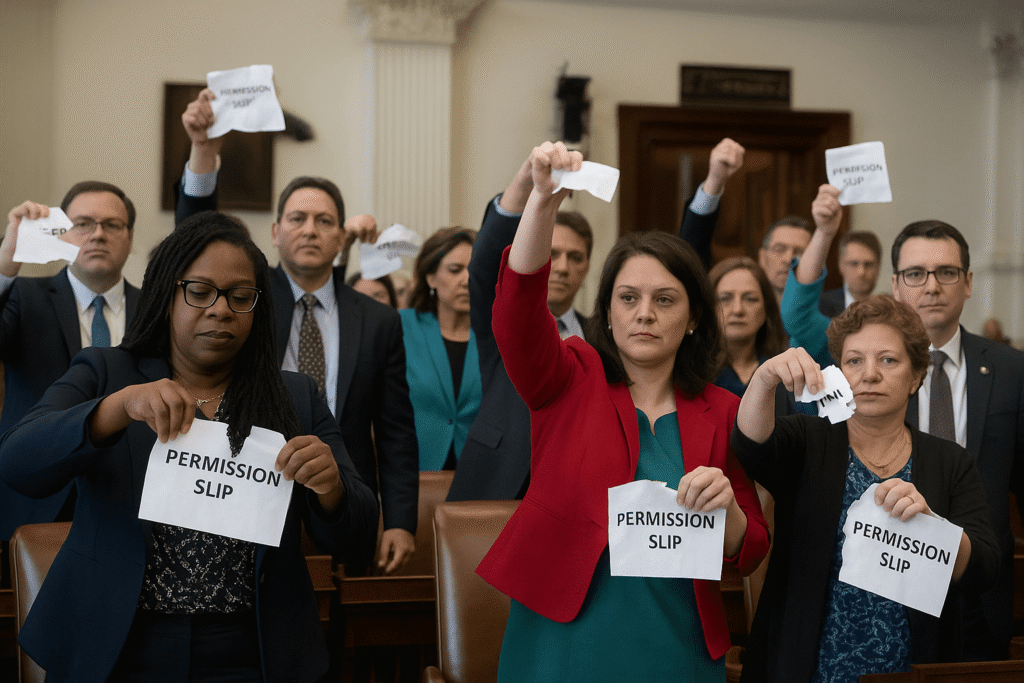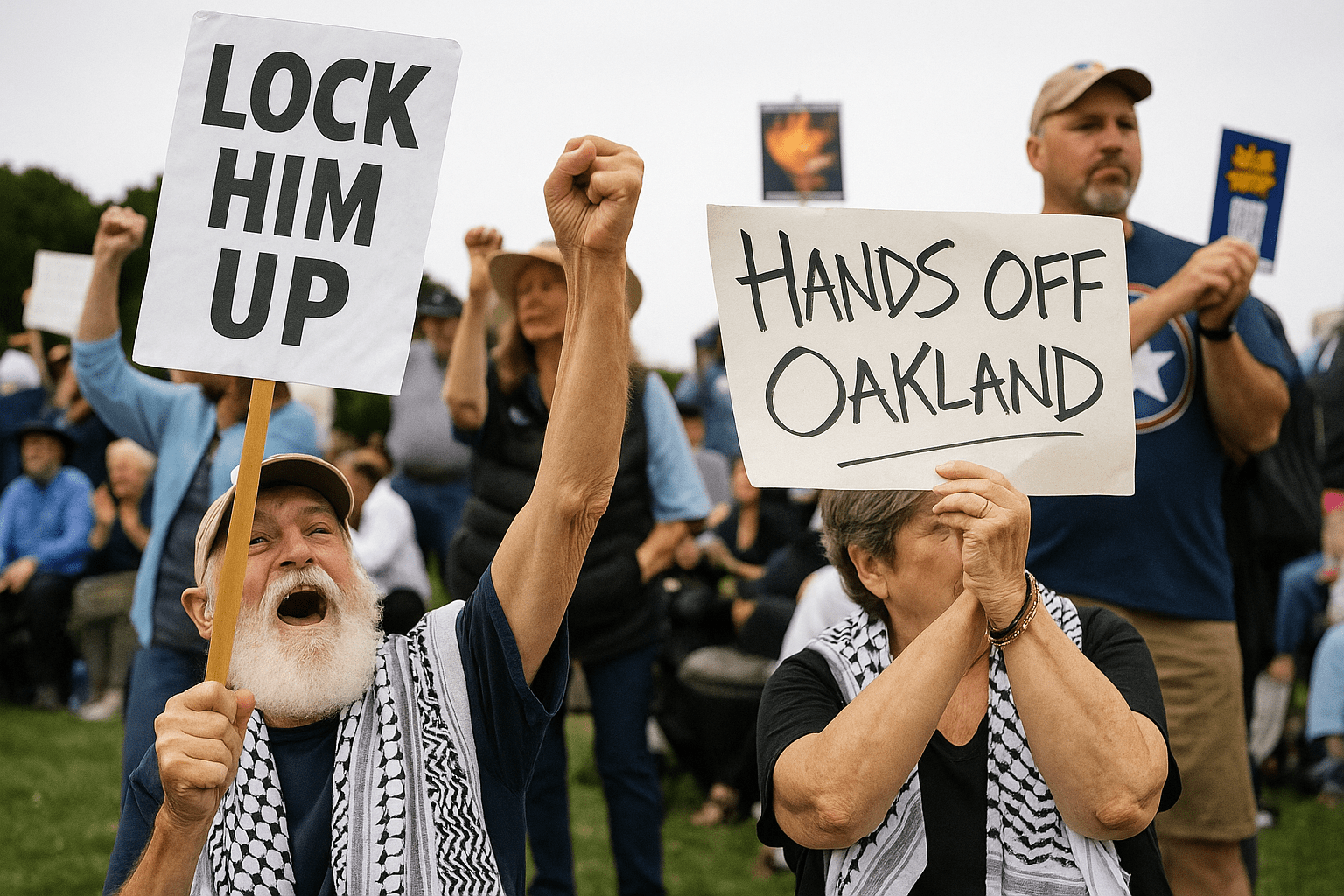|
Getting your Trinity Audio player ready... |
In a dramatic escalation inside the Texas Capitol, the Texas Democrats permission slips protest made headlines as lawmakers tore up mandatory forms in defiance of Republican House Speaker Dustin Burrows. The unusual protest erupted after Burrows imposed controversial rules requiring Democratic lawmakers to remain under police escorts if they wanted to leave the chamber, sparking outrage over civil liberties and fueling tensions ahead of the 2026 midterms.
The standoff came just hours before a critical vote on disputed redistricting maps, which Democrats say amount to blatant gerrymandering designed to secure more congressional seats for Republicans and strengthen former President Donald Trump’s hold over the GOP.
Why the Texas Democrats Permission Slips Protest Matters

As part of a new security measure, Democrats had to sign “permission slips” that said they would be kept by a Texas Department of Public Safety (DPS) officer anytime they left the chamber. The officer would then be responsible for escorting lawmakers back inside, preventing them from staging another quorum break.
Rep. Nicole Collier, who represents a minority-majority district in Fort Worth, led the permission slips protest by refusing to sign the form. She stayed overnight in the chamber, livestreaming her protest, while officers were dispatched to follow other Democrats to their offices, homes, and even grocery stores.
“This is an assault on our dignity,” Collier declared, calling the protocol “humiliating” and warning that it represented an attempt to control elected officials through intimidation.
Republican Speaker Dustin Burrows’ Controversial Rules
Republican House Speaker Dustin Burrows defended the monitoring protocols as part of enforcing House rules after weeks of disruption. During the summer, dozens of Democrats fled Texas for Democratic strongholds such as California, Illinois, and New York to block approval of new congressional maps.
Their absence prompted Republicans to issue civil arrest warrants and fine lawmakers $500 per day until they returned. Upon their arrival back in Austin, Burrows ordered police escorts to shadow them around the clock. The Texas Democrats permission slips protest quickly grew into a symbol of resistance against what lawmakers called humiliating surveillance protocols.
Burrows attempted to minimize the protest in a statement, saying, “Representative Collier’s decision to stay in the chamber and not sign is within her rights under House rules.” Instead, he shifted focus to unrelated issues such as property tax relief and flood recovery, avoiding direct mention of redistricting.
Surveillance, Police Escorts, and Civil Liberties
Several Texas Democratic lawmakers described the police escorts as intrusive. Rep. Linda Garcia recounted being trailed by an officer for three hours back to Dallas, followed into every aisle of a grocery store, and watched outside her home by unmarked police cars.
Garcia added, “It felt like they were treating me like a suspect.” Garcia said. “It’s the same feeling you get when someone is watching to see if you’ll shoplift.”
Others, like Rep. Sheryl Cole of Austin, reported more tense interactions. She claimed an officer monitoring her during a morning walk lost track, became angry, and threatened to arrest her.
Democrats argue that this level of surveillance violates their civil liberties and sends a chilling message about dissent inside the state legislature. Rep. Penny Morales Shaw of Houston pushed back, saying bluntly, “We are not criminals.”
Gerrymandering, Redistricting, and the 2026 Midterms
At the heart of the Texas Democrats permission slips protest is a larger battle over redistricting and gerrymandering. Republicans are aiming to redraw district lines to secure five additional GOP-held congressional seats, countering Democratic efforts in California to reclaim five seats there.
The stakes are high: Trump has been pressuring state legislatures to lock in favorable maps for Republicans ahead of the 2026 midterms, when control of the U.S. House will once again be up for grabs.
Democrats say they returned to Texas partly because they believe the maps can be challenged in court, citing violations of voting rights in minority-majority districts. Nationwide, civil rights groups are already mobilizing to contest maps they view as designed to dilute minority representation.
Legal Action and Political Fallout
Since leaving the state earlier this month, Democrats have faced mounting legal and political pressure. Governor Greg Abbott sought approval from the state Supreme Court to remove certain lawmakers from office, while Republican leaders continued to push financial penalties and arrest warrants.
Despite these tactics, Democrats appear determined to resist what they see as an authoritarian overreach. Rep. Cassandra Garcia Hernandez called the sit-in and refusal to sign permission slips a “wake-up call for democracy,” adding that Democrats were holding strategic sessions inside the chamber.
A Test of Democracy in Texas
The Texas Democrats Tear Permission Slips is more than a symbolic act. It highlights deepening divisions over redistricting, gerrymandering, civil liberties, and the role of police escorts in legislative politics. As the 2026 midterms draw closer, both parties are fighting fiercely to control the maps that could shape congressional power for the next decade.
For Democrats, tearing up the permission slips was a statement: they will not be intimidated into silence. For Republicans, enforcing surveillance protocols was a way to maintain order and advance their agenda.
Either way, the confrontation underscores how even the mechanics of legislative procedure have become battlegrounds in America’s ongoing struggle over democracy.







